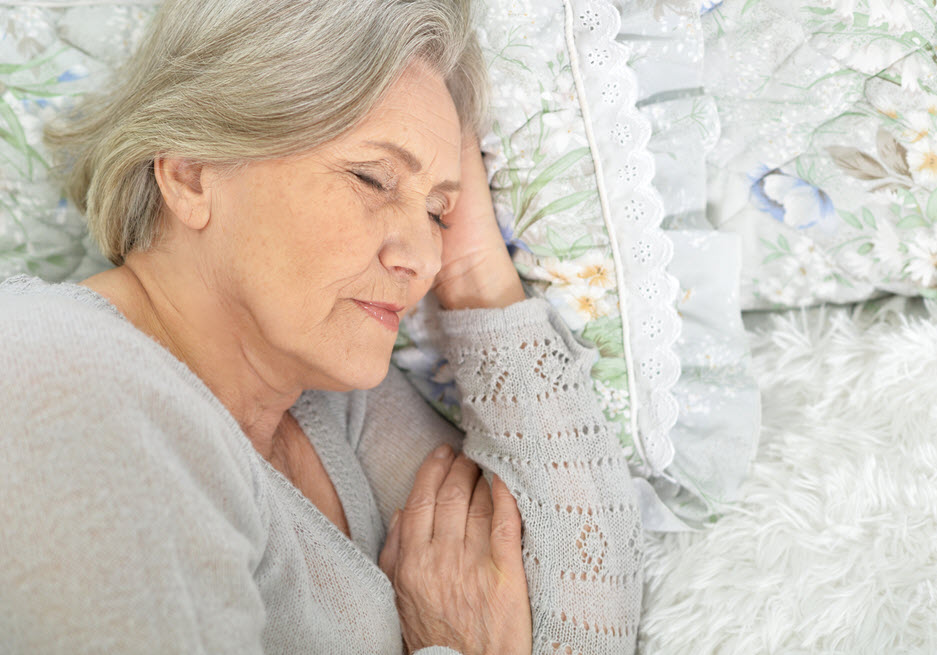Aging Seniors and Insomnia – How to Help the Elderly Overcome Sleepless Nights
Insomnia is a common problem among seniors, and studies show that more than 50% of the elderly have a difficult time sleeping. While changes in the quality and amount of sleep are normal with aging, insomnia is a bigger problem that may require medical treatment. Unfortunately, many individuals with insomnia try to self-medicate, which can be a problem for aging seniors receiving home care. Here’s a closer look at insomnia in seniors and tips for helping the elderly overcome this common problem.
What is Insomnia?
While everyone deals with difficulty sleeping from time to time, insomnia is different than the occasional restless night. Insomnia involves difficulty falling asleep and staying asleep regularly. It’s the inability to get enough sleep or the quality of sleep needed to feel refreshed in the morning. Short-term insomnia may be caused by psychiatric or medical conditions and usually lasts less than a month. Chronic insomnia is defined as insomnia that lasts for more than a month.
What are the Signs of Insomnia in Seniors?
It’s important for family members and in-home care givers to recognize the signs of insomnia in the elderly so it can be addressed. Some of the signs a senior may be dealing with insomnia include:
- Taking a significant amount of time to fall asleep at night (longer than 30 minutes)
- Waking up too early and being unable to go back to sleep again
- Waking up multiple times during the night
- Waking up still feeling tired
- Night falls
- Feeing exhausted, tired, or drowsy during the day
- Problems concentrating
- Irritability
- Difficulty remembering things
Potential Causes of Insomnia in the Elderly
Some of the most common causes of insomnia in the elderly include:
- Medical Conditions and Pain – Many medical conditions, including arthritis, heartburn, Alzheimer’s, diabetes, and menopause have the potential to interfere with sleep. Pain may also make it difficult for seniors to sleep at night.
- Lack of Exercise – Seniors that aren’t active enough may have a tough time sleeping at night.
- Medications – The side effects of some medications may impair sleep.
- Sleep Disorders – Snoring, sleep apnea, and restless legs syndrome may result in difficulty sleeping.
- Poor Sleep Environment or Habits – Falling asleep with the television on or following irregular sleep hours may cause insomnia.
- Depression – In some cases, insomnia may be a symptom of depression in the elderly.
Effectively Treating Insomnia in Seniors
If a senior displays potential signs of insomnia, it’s important to see a physician. A physician will use multiple diagnostic tools to discover if the senior is truly dealing with insomnia or if there’s another underlying medical problem. In many cases, a physician or elder care professional will recommend making some simple lifestyle changes. Tips for reducing problems with insomnia in the elderly include:
- Ensuring the senior’s sleep environment is comfortable, dark, safe, and quiet
- Maintaining a regular wake/sleep schedule
- Engaging in relaxing activities before bedtime
- Avoiding caffeine before bedtime
- Limiting naps during the day
- Avoiding heavy meals or too much liquid within a couple hours of bedtime
In some cases, a physician may prescribe prescription medications to treat insomnia. However, sleeping aids do have potential risks. Elderly adults should never take sleep aids without talking to a home care or other medical professional.
If you or an aging loved one are considering in-home senior care in Philadelphia, PA, contact the caring professionals at Reliant At Home Care today (610) 674-6860.





